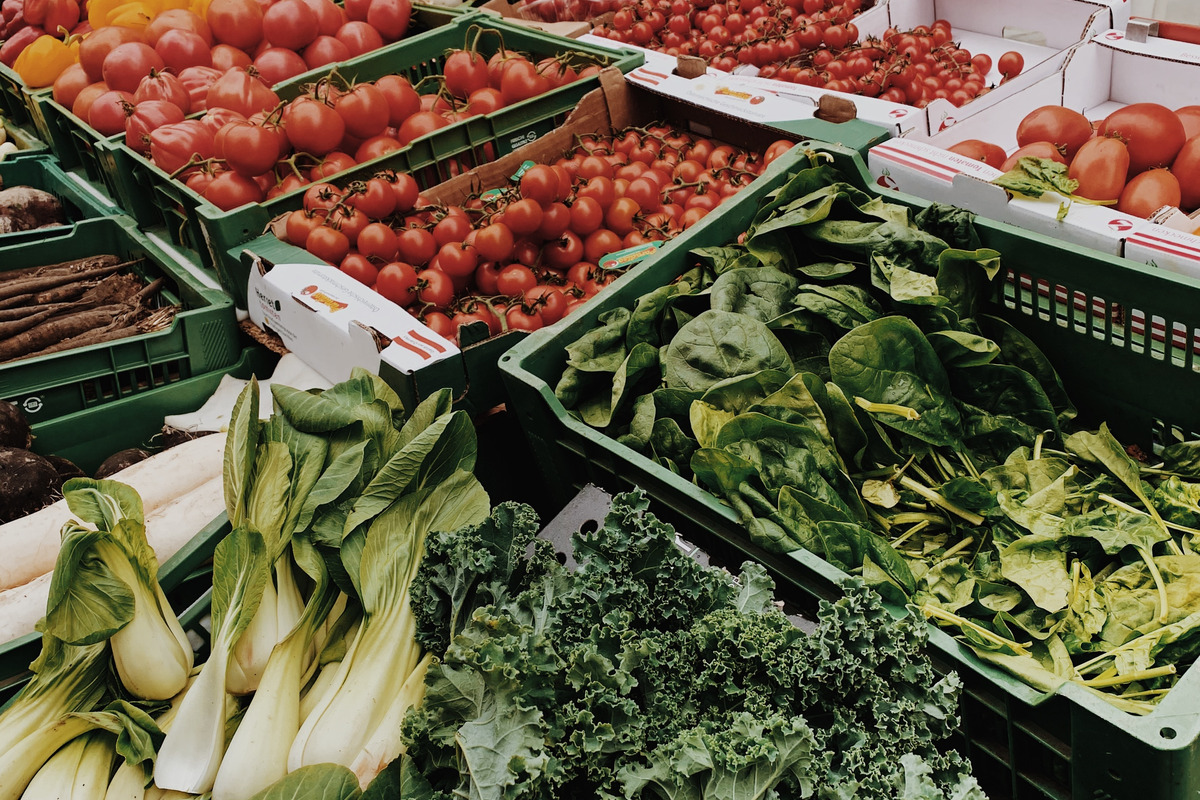This article will explain a bit more about the ins and outs of grocery shopping in France. Don’t worry, no secrets will be revealed or magic tips shared, but you can learn a bit more about the way you buy stuff in France.
How to shop for groceries in France?
Do you live in a major city or not?
Your shopping habits will vary if you live in a major French city, or in a suburban/rural area. In all major cities in France, you’ll find supermarkets within the city limits. There are small shops where you can find all most products, fewer than in huge supermarkets, but don’t worry, it’s enough for everyday life. You’ll find them everywhere across urban areas. There usually are around 3 or 4 in your neighbourhood. To give an example, within a 500m radius of my home, there are 2 Carrefour, 1 Intermarché, and 2 Franprix and 2 Monoprix.
Inside cities, these shops usually open from 9 or 10 am until 9 or 10 pm, and they are open on Sundays.
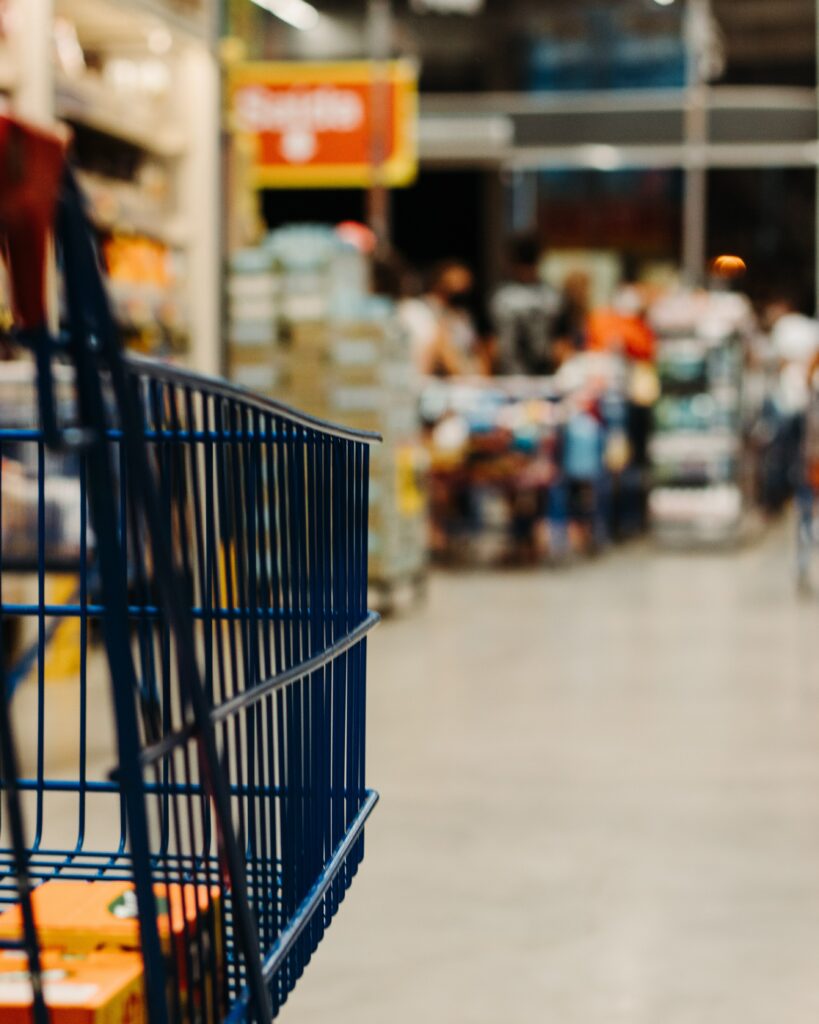
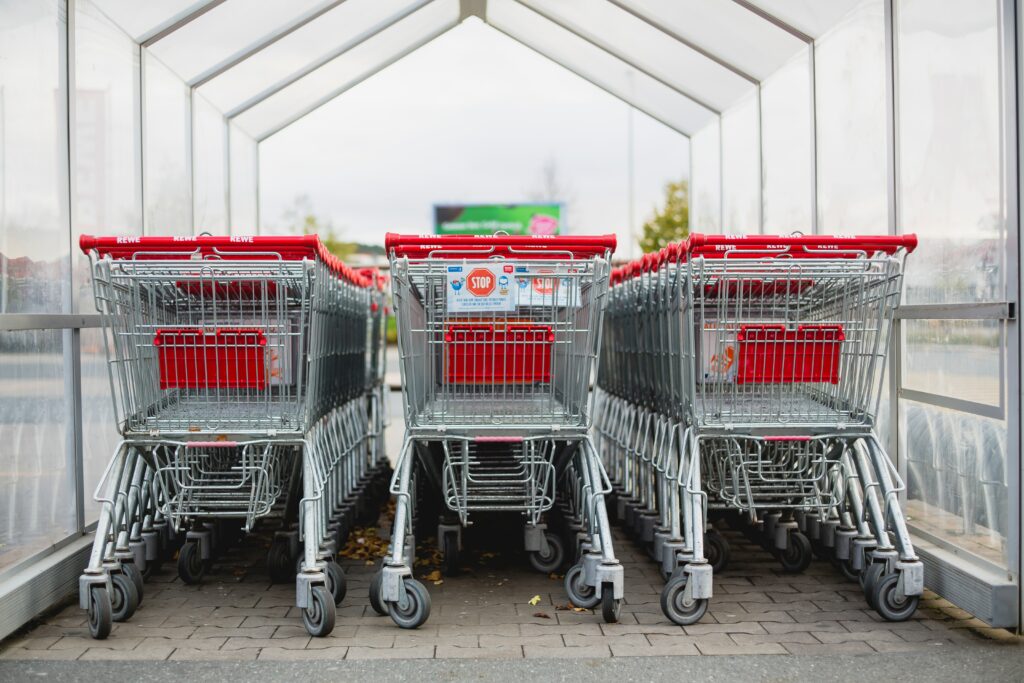
On the contrary, in the suburbs or rural areas, the “Centre Commercial” will be your go-to place. It’s a mall organised around a hypermarket. A hypermarket is a very, very large grocery store that also sells other essentials, like Walmart in the US.
These shops have less broad opening hours and most of the time are closed on Sundays and sometimes during lunch hours. Make sure you pick the right time or day to get your shopping done.
The brands of these grocery shops are basically the same wherever you live. You’ll find the usual suspects: Carrefour, Monoprix, Intermarché, Leclerc, Franprix, Casino, Lidl, etc.
In big cities, you may have more choices regarding the grocery shops as you’ll have ethnic options (Asian food, African food, etc) or organic shops (Naturalia, Bio C Bon, etc.).
French people shop outside of supermarkets for specific items
French people are what you may call “gourmet” and if their budget allows it, they will get their cheese, bread, meat, and alcohol in dedicated shops. This is often the case in larger cities where a lot of shops are in a small area. It also happens elsewhere if it’s possible to directly source products from the producer.
Here are the names of the shops :
Bakery = Boulangerie
Butcher = Boucherie
Cheese shop = Fromagerie
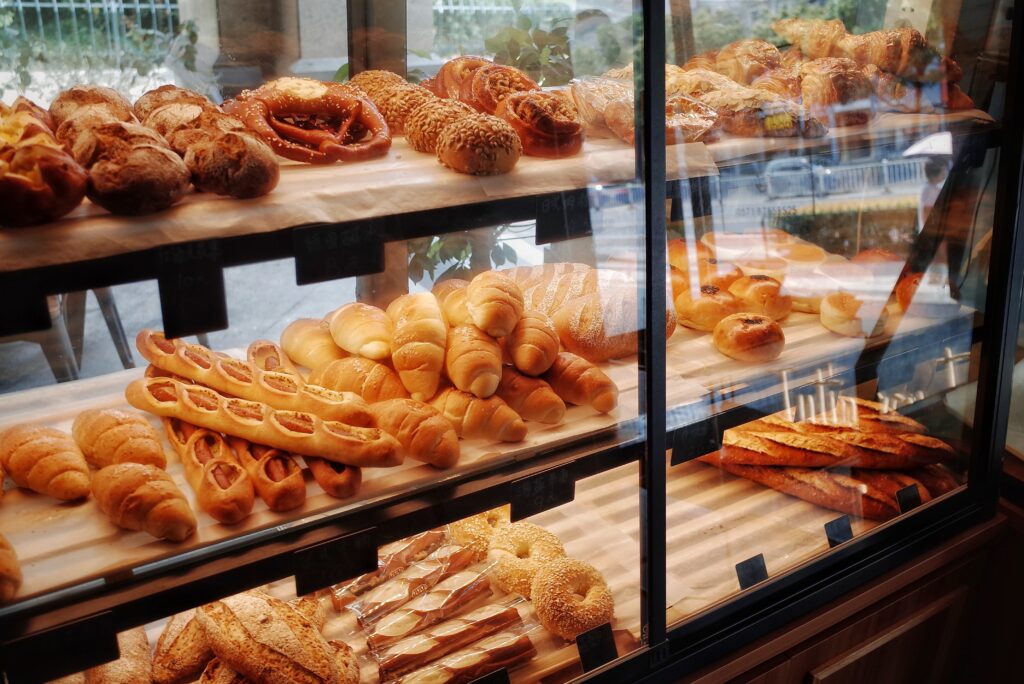
The liquor shop that you’ll find most often in France is Nicolas. It’s not an off-license, so you’ll only be able to get alcohol during normal opening hours. They have very decent products that range from medium to higher/top quality.
What time should I go grocery shopping?
You may hear that French people shop daily and that the supermarket down in the street is their fridge. That may be true in big cities where you’ll see long lines at the cashier with people merely buying a couple of leeks, a bottle of wine, and some ham.
However, everywhere else, you plan your shopping ahead because the opening hours are not that flexible!
How do I go to the market?
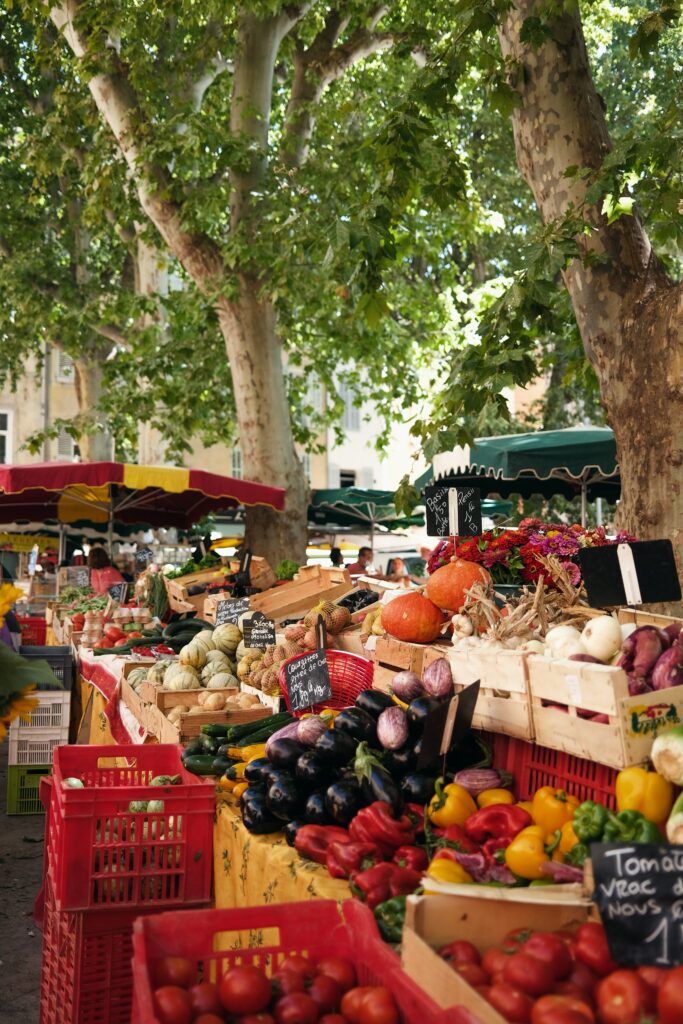
If you’re a fan of markets and know the producer closely, a lot of options are available to you. In most cities in France, there is a weekly or bi-weekly market. You’ll find all the info if you follow this link.
For people living in Paris, the info will be this way.
Tip: if you like fresh produce, you can register with an AMAP (association de maintien de l’agriculture paysanne = Association to maintain agricultural production).
How does it work: every week you get a selection of products (vegetables etc.) based on seasonality, meaning you don’t choose them. So you may get leeks and potatoes one week and the next time, chard and sorrel. Here is the official website to register.
How does it work for off-licenses?
We have all been in this position, 2 am, the party is going nicely, but the drink level is getting low and you need to reload. Shops are closed and bars too, so where are you going to go?
To an off-license!
These shops are open until quite late and offer a nice variety of soft drinks, booze, crisps, biscuits, etc. The catch is that the prices are quite high. In conclusion, these shops should remain your last resort. We don’t recommend shopping there for your everyday needs.
You’ll notice the off-licenses usually have the word “épicerie” in their name.
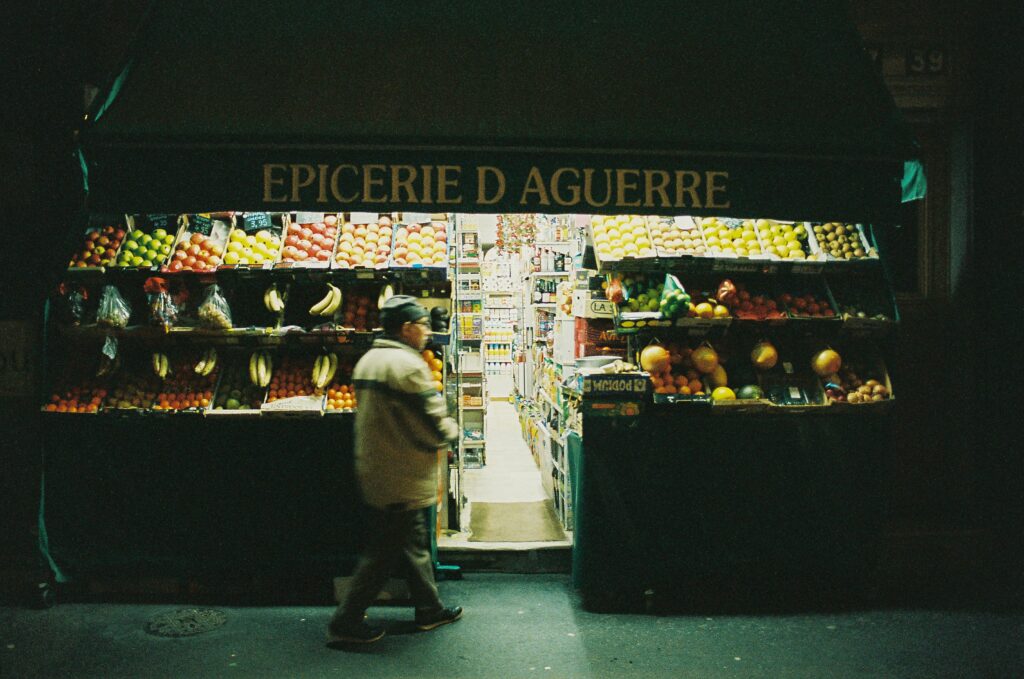
Getting your groceries delivered
For some people, grocery shopping is just too tiresome or they may not have time to go to the shop. If this is the case, there are a couple of options available.
Be advised, this is not your classic food delivery app like Deliveroo, this is a grocery delivery solution. If you were hoping to get a warm meal through these apps, you will be disappointed.
The first solution is to get in touch with the actual stores. Monoprix, Carrefour, Intermarché, all of them offer a delivery option either on their websites or once you’re in the store. The option could be to go in the store, fill your cart and get it delivered or to order everything online.
The second solution is offered by a series of apps that, if you ask me, compete for the weirdest names. The service usually is either a delivery within 10 minutes based on availability. These apps work in Paris, but they may not be fully operational in other cities.
Here are the main ones :
Apps against food waste
I don’t know how much is thrown away every year in supermarkets but it’s way too much. To fight against this waste, a couple of apps make it possible to collect the food that is about to be discarded. They will list the participating shops and you can get a brief overview of what you can expect to receive. When you make a purchase, they instruct where and when you can collect your products.
Be advised that you don’t choose the food you’ll get.
Here are the apps
Tips
- In any shop, you can scan the barcode of the products with the YUKA app. It’ll give the nutritional information and overall quality of the item (including environmental info).
- If there is a store you go to regularly, ask for a loyalty card (“carte de fidélité”). You’ll save money the more you buy in the same shop.
- Don’t go to an off-license if you don’t need to, prices are usually higher.
